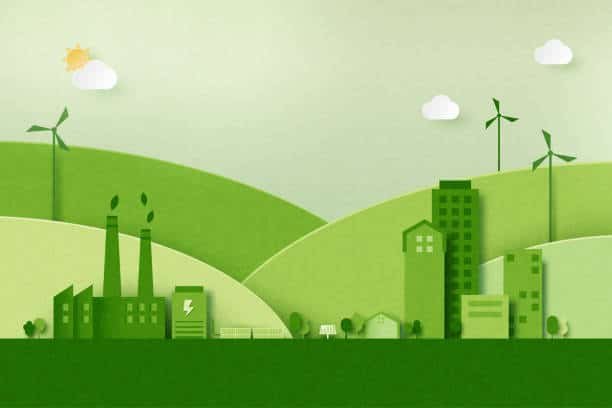Transforming Society for Sustainability: The Role of Modern Technology
Modern technology is important in today’s fast-paced world where the concept of sustainability has become increasingly crucial.
With the rising concerns about environmental degradation, resource depletion, and climate change, societies across the globe are actively seeking ways to transform their practices for a more sustainable future.
Modern technology has emerged as a powerful tool in this endeavor, offering innovative solutions to address the challenges we face.
This article explores the role of modern technology in transforming society for sustainability.

1. Introduction to Sustainability and Modern Technology
Sustainability encompasses the principles of environmental conservation, social equity, and economic development. It aims to meet the needs of the present generation without compromising the ability of future generations to meet their own needs. Modern technology, with its constant advancements, presents opportunities to achieve sustainable development in various sectors.
2. Energy Sector: Harnessing Renewable Sources
One crucial aspect of sustainability lies in transitioning to clean and renewable energy sources. Modern technology has enabled significant advancements in this area. Solar panels, wind turbines, and hydroelectric power are examples of clean energy technologies that can reduce our dependence on fossil fuels and mitigate greenhouse gas emissions. The efficient utilization of these technologies can revolutionize the energy sector and lead us towards a more sustainable future.
3. Transportation: Electric Vehicles and Smart Mobility
The transportation sector is a major contributor to carbon emissions and air pollution. However, modern technology offers promising solutions to transform this sector. Electric vehicles (EVs) have gained popularity due to their zero-emission nature and increased energy efficiency. Additionally, the concept of smart mobility, incorporating technologies like ride-sharing, intelligent traffic management, and autonomous vehicles, can optimize transportation systems, reduce congestion, and minimize environmental impacts.
4. Waste Management: Smart Solutions for a Circular Economy
Dealing with waste is a significant sustainability challenge. Traditional waste management practices often involve landfilling or incineration, which have adverse environmental consequences. Modern technology introduces smart solutions for waste management, promoting a circular economy approach. Technologies such as recycling, composting, and waste-to-energy conversion offer more sustainable alternatives, reducing the environmental burden of waste disposal.
5. Agriculture: Precision Farming and Sustainable Practices
Agriculture plays a vital role in ensuring food security, but conventional practices can have detrimental effects on the environment. Modern technology enables precision farming techniques, such as remote sensing, drones, and data analytics, which optimize resource usage and minimize environmental impacts. Furthermore, sustainable agricultural practices, such as organic farming, permaculture, and agroforestry, can enhance biodiversity, soil health, and water conservation.
6. Urban Planning: Creating Smart and Sustainable Cities
As urbanization continues to accelerate, designing and developing sustainable cities becomes imperative. Modern technology facilitates the creation of smart cities that integrate intelligent infrastructure, energy-efficient buildings, and advanced transportation systems. By employing data-driven approaches and innovative solutions, cities can optimize resource allocation, reduce energy consumption, and enhance the quality of life for their residents.
7. Education and Awareness: Promoting Sustainable Mindsets
Transforming society for sustainability also requires a collective shift in attitudes and behaviors. Education and awareness play a crucial role in fostering sustainable mindsets among individuals and communities. Modern technology can facilitate access to information, online learning platforms, and interactive tools, empowering people to make informed choices and adopt sustainable practices in their daily lives.
8. Conclusion
In conclusion, the role of modern technology in transforming society for sustainability is undeniable. From harnessing renewable energy sources to revolutionizing transportation, waste management
, agriculture, urban planning, and promoting sustainable mindsets through education, technology offers a myriad of solutions. Embracing these advancements and integrating them into our systems and lifestyles will pave the way for a sustainable future. As we continue to explore the potential of modern technology, collaboration between governments, industries, and individuals becomes vital to create a more resilient and sustainable society for generations to come.
So, let us embark on this transformative journey, leveraging the power of modern technology, and shaping a world that prioritizes sustainability and the well-being of our planet and its inhabitants.
Here are a few examples that highlight organizations and their respective websites dedicated to environmental conservation, sustainability, and renewable energy:
- World Wildlife Fund (WWF): WWF’s official website, serves as a valuable resource for information regarding environmental conservation efforts and sustainable practices. Explore their platform to gain insights into their impactful initiatives.
- United Nations Sustainable Development Goals (UN SDGs): This platform provides comprehensive information about the UN SDGs and their significance in promoting a sustainable future.
- International Renewable Energy Agency (IRENA): For in-depth insights into renewable energy technologies and their role in achieving sustainability.
- Greenpeace: Greenpeace, a renowned environmental organization, actively engages in campaigns and initiatives for environmental protection.
- World Resources Institute (WRI): WRI is dedicated to conducting research and providing practical solutions for environmental sustainability.


